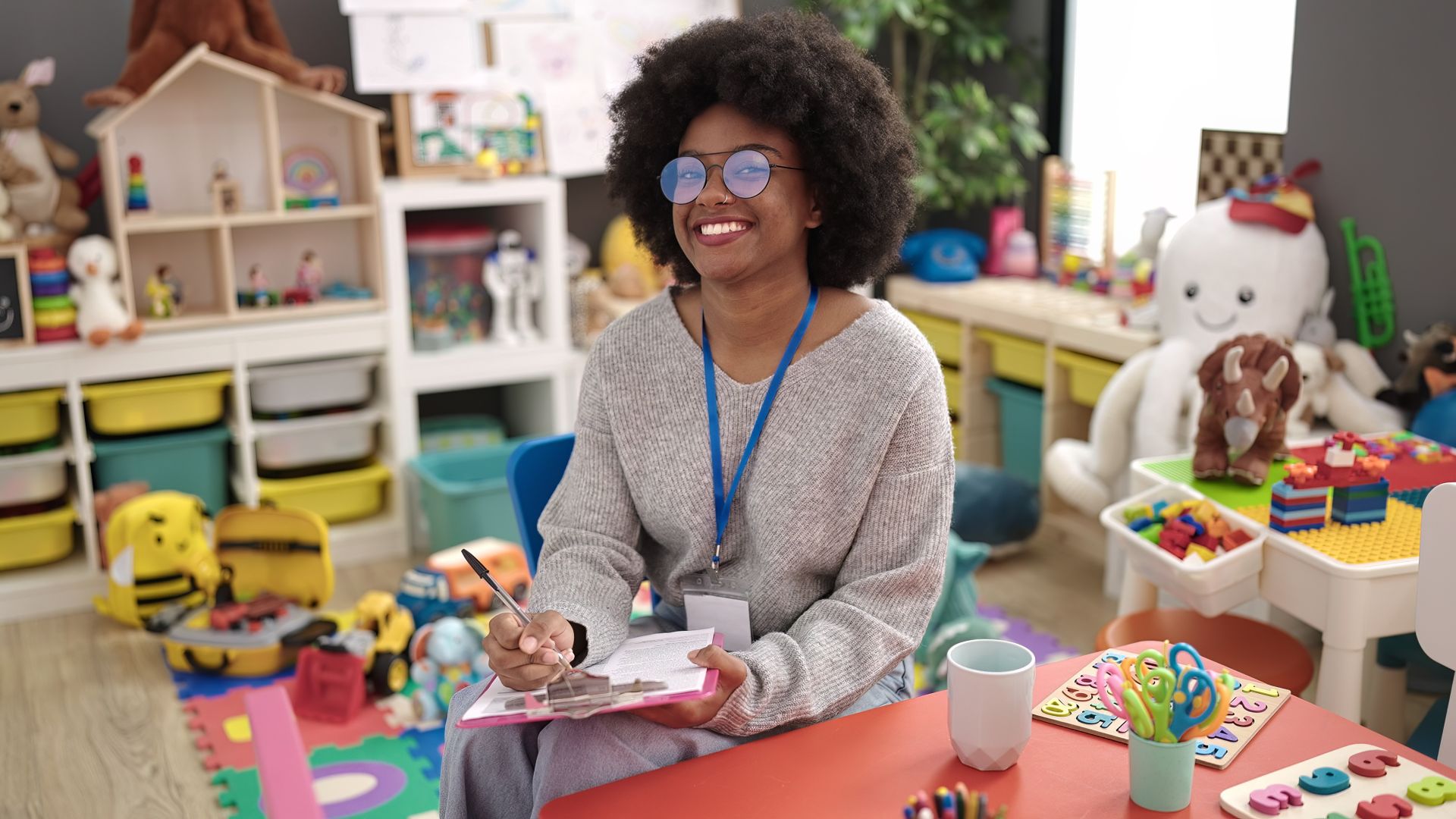Building Your Challenging Behavior Toolbox: Data Collection and Behavior Support Plans

Even the most experienced teachers sometimes struggle to find a solution to challenging behaviors because behaviors can be tricky! Behavior is what a child does or the actions they take. A child's observable actions (the behaviors we can see) are influenced by how they feel inside (their emotions, sensations, and memories). The behavior we see in the classroom is just the tip of the iceberg. We need to look and see what’s going on under the surface to truly understand what behavior is communicating. For example, a child yelling and grabbing a toy from a peer might be a child’s way of expressing they’re frustrated. We need to teach them to say "No!” or “Mine!” when someone takes a toy they are still playing with.
So, to truly understand why a behavior is happening we have to dig beneath the surface and really get curious about what is going on for a child on the inside. Because in order to identify effective strategies that actually work, we have to understand why a behavior is happening – what the function of that behavior is. Let’s say a young child bites their friend. We might assume they are biting because they are teething and they need the sensory input they get from biting something, so we give them a teether to chew on. But if the child is really biting because they want a toy their friend has, the teether strategy probably won’t work and we need to instead focus on teaching them a more socially acceptable way to ask for a turn.
But how can we figure out what the function of a behavior is? We can do this by using an ABC chart to collect data on behaviors that keep happening. This data helps us to identify the antecedent (what happens right before a behavior) and the consequence (what happens right after) of a behavior, which can start to show us patterns that lead us to the function or the

“why” of a behavior. Our strategies only work when we get the function right, so this data collection step is a very important first step.
Once we understand the function of a behavior, we can take the
next step and create a behavior support plan to use the strategies we’ve
identified. A behavior support plan is a document where teachers and staff
write out a plan for a child who has a challenging behavior. This plan details exactly
what they will do to prevent the challenging behavior from happening, how they
will teach and encourage replacement skills (these are the things a child can
do to meet their needs instead of doing the challenging behavior), and how
adults will respond to the challenging behavior when it does occur. Our goal is
to support the child to communicate their needs and desires more
effectively and appropriately so that they don’t need to use challenging
behavior.
If collecting data and creating behavior support plans sound daunting, we’ve got some good news – it’s easier than you think. Inclusive early childhood education programs everywhere are using these tools because they’re the “secret sauce” when it comes to transforming challenging behavior. And our new Behavior Support Toolbox Bundle will give you all of the tools and information you need to feel confident managing the challenging behaviors in your class. In addition to these courses, check out these resources from the HeadStart Early Childhood Learning & Knowledge Center to continue to build your toolbox for supporting children with challenging behaviors and disabilities. With IMPACT’s support, you can feel confident you have the tools and knowledge you need to support children with challenging behaviors and promote positive behaviors in your classroom.
- NWC IMPACT Team
If you're interested in learning more about challenging behaviors, check out these courses:
All content, including the presentation thereof on this web site, is the property of Northwest Center IMPACT™, and protected by U.S. and international copyright laws. You may not copy, reproduce, distribute, transmit, modify, create derivative works, or in any other way exploit any part of copyrighted material without the prior written permission from Northwest Center.
Connect
-
Seattle, WA
-
impact@nwcenter.org
-
NWC Home
Policy pages
Subscribe & stay up to date
Copyright © 2025
